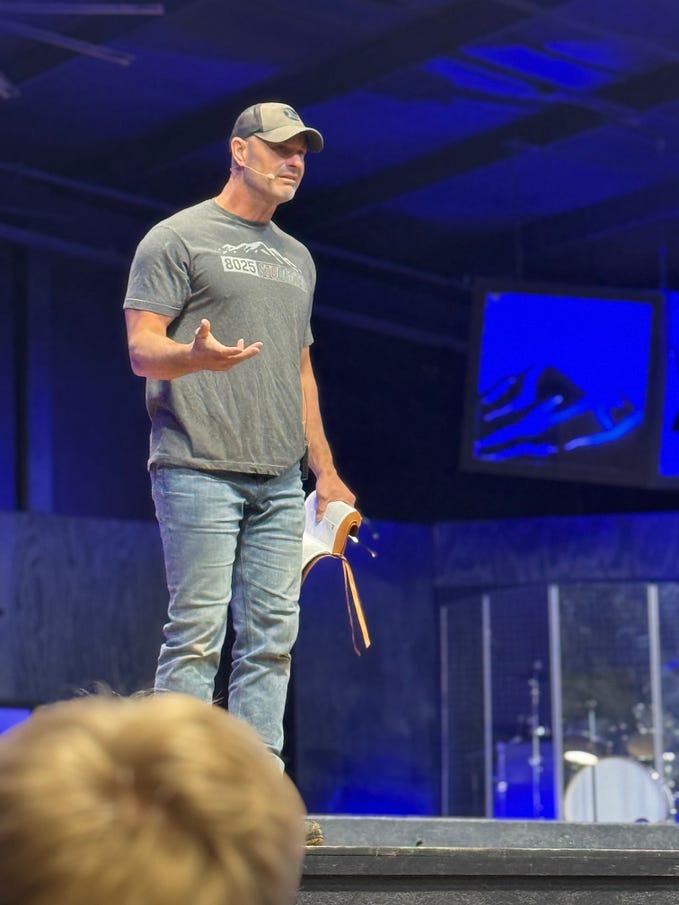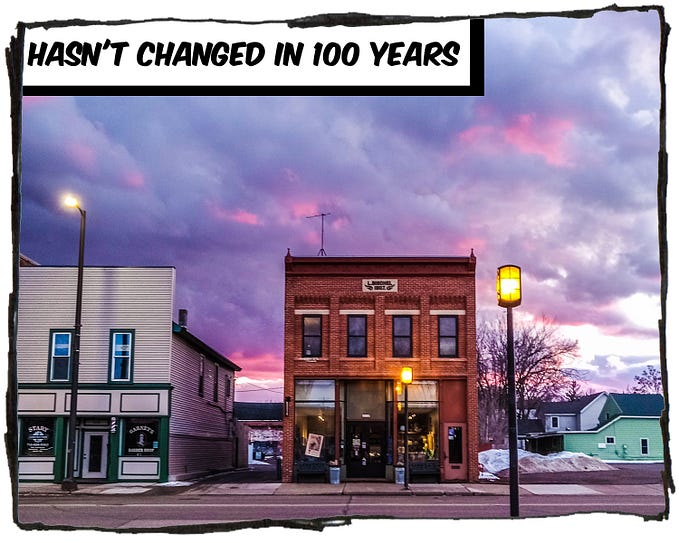Are we ready for this task?
Sermon given to Spring Friends Meeting on July 26 using Luke 4:14–21 as text.

Australian wildfires, going to the brink of war with Iran, Brexit, the continued assault on Black Lives by law enforcement around the US, while a global pandemic which has been underestimated and downplayed by our corrupt imperialistic administration. Wow, it has been quite a year so far and we have not finished July yet.
Yet the passage that was just read from Luke 4 is about proclaiming the good news to the poor, proclaiming release to the captives, the recovery of sight to the blind, letting the oppressed go free, and finally, Jesus states that this is the year of Lord’s favor.
Why do I want to talk about that today, in the midst of this year we are having? Is this really the year of the Lord’s favor? Sometimes it feels like we are living in a never-ending Holy Saturday, that bleak day between Jesus’ execution and His resurrection. This place of unknowingness when it is hard to feel confident that everything is going to be ok, or anything at all. Frankly, in some ways this year feels like an ongoing dumpster fire. This bleakness seems like it will never end. Will we ever be gathered back together as a community where we feel safe in large groups? When will we feel safe to hug each other? When will we have normalcy again?
In many ways, we are living in a chaotic time similar to what Jesus was living in two millennia ago, under an imperialistic Empire in Palestine. The passage Jesus reads from the Book of Isaiah is chapter 61, which is part of Third Isaiah. The book of Isaiah is commonly viewed as being written in three parts. The first part is before the Israelites go into exile, the second part is from during their exile in Babylon, and the third part is when they return from exile. When they return to their homeland, they found it in destruction and a time of conflict soon happens there between the returnees and those who had stayed. Yet during that time the prophet still found a reason to preach this message of hope.
Three different time periods, three tumultuous times, and they are all still the year of the Lord’s favor. By saying this I do not want to minimize the pain or the death. It is still grim out there, almost 150,000 people are dead here in the US from COVID and millions are still sick. We are still living under leadership that constantly put Wall Street’s interests before the welfare of the least among us. People are still in prisons that are exploiting their labor every day.
Our political leaders here in the US generally like to highlight their faith, usually Christian, in running for office, but how many actually follow this message of proclaiming release to the captives and letting the oppressed go free? The Kingdom of God will be built by the people who oppose the Empire, not by people serving the Empire or its interests. Some of those who oppose Empire will be ignored, and others will be discredited, while a few will be executed by the Empire, just like Christ was 2,000 years ago.
This is the year of the Lord’s favor. How are we working towards the Kingdom of God here on Earth? How are we working with the oppressed to achieve this? How are we freeing the captives?
I have not mentioned the recovery of sight part yet because I want to explore that phrase deeper. As someone who is disabled and has studied disability theology, these types of passages can be interpreted in several different ways. Historically they were interpreted as Jesus healing sins that the disabled people supposedly have. Those people must have sinned in some way or been cursed in order to have disabilities
This belief still exists today with the healing narratives surrounding believing and/or praying hard enough, one will be cured, especially around terminal illnesses. Trust me that praying does not work in curing disabilities. I have tried many times. I do believe in prayer and the Quaker way of holding people in the Light of Christ but I do want to caution people about this harmful narrative that still exists to this day.
In her book, The Disabled God, Nancy Eisland points out that the resurrected Christ rose bearing the wounds of his crucifixion, His perfect body clearly displaying these wounds. Within these wounds of the Disabled Christ, I see my disabled self as perfect.
Therefore, scholars, like Eisland, argue these healing phrases and narratives are more about restoring the disabled to their communities than about curing any perceived sins.
I make this point because we need to be aware of how we interpret the Bible and how that affects how we view others in daily life. How can we be aware of reading the Bible in ways that question our own implicit biases, instead of confirming them?
Therefore, I read this phrase as saying that disabled people will not be left behind by God.
Going back to the overall theme of this being a year of the Lord’s favor, I see hope in the midst of all of this. Within this time of heartbreak and the unknown, I see Christ working among us. I see communities stepping up to help each other as you all did after the tornado that touched down nearby Spring Meeting. I see people rising up for Black Lives Matter and the symbols of the Confederacy coming down. I see a turning tide of communities finding ways to stay connected when we can’t always be in physical contact. Actually, in some ways, this has allowed more people to connect with communities from a distance like me visiting you all today from Boston
Yes, this is the year of the Lord’s Favor and Christ through his Crucifixion has fulfilled His part, now it is up to us to complete our part here on Earth: To release the captives, to restore the disabled to their/our communities, and let the oppressed go free.
Are we ready for this task?







